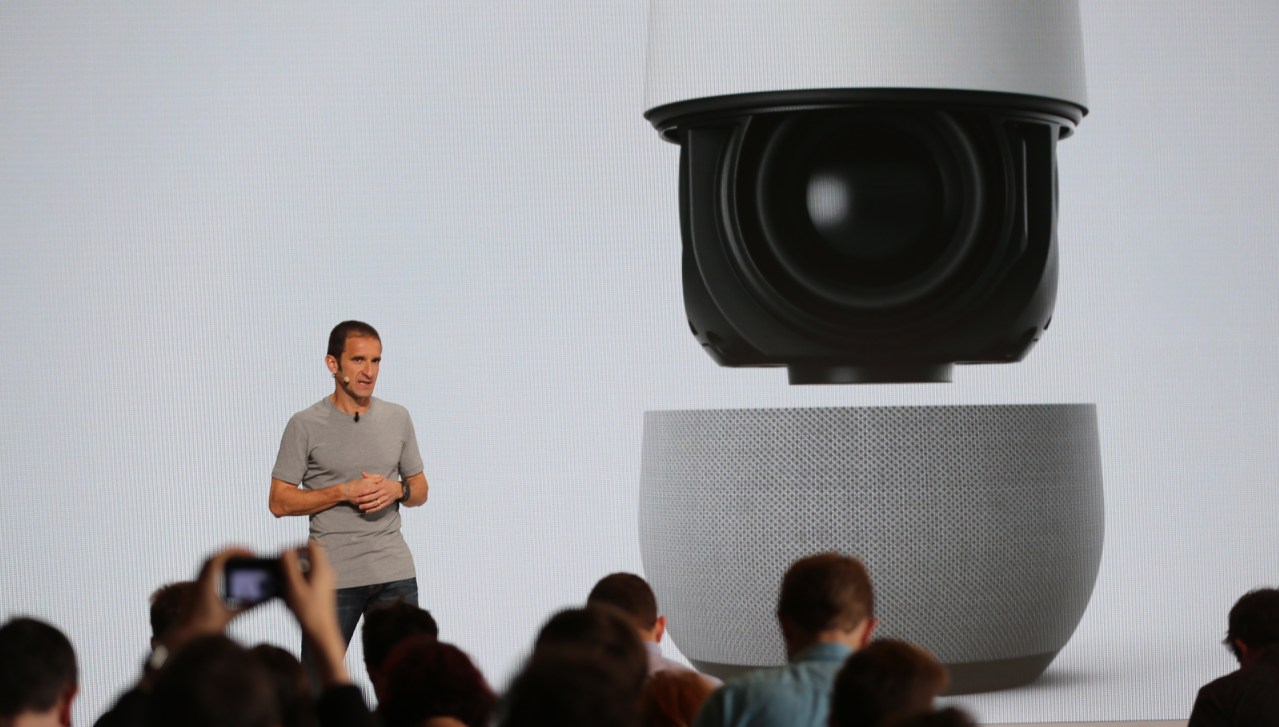We’re moving from a mobile-first world to an AI-first world... We are building a personal Google for everyone, everywhere. ~Sundar Pichai
Adam Rifkin stashed this in Artificial Intelligence
Stashed in: Google!, internet, @sundarpichai, Privacy!, Echo
These lines from Sundar Pichai:
We’re moving from a mobile-first world to an AI-first world.
We are excited about building a personal Google for everyone, everywhere.
Natasha Lomas explains:
The scope of Alphabet’s ambition for the Google brand is clear: It wants Google’s information organizing brain to be embedded right at the domestic center — i.e. where it’s all but impossible for consumers not to feed it with a steady stream of highly personal data. (Sure, there’s a mute button on the Google Home, but the fact you have to push a button to shut off the ear speaks volumes… )
In other words, your daily business is Google’s business.
“We’re moving from a mobile-first world to an AI-first world,” said CEO Sundar Pichai kicking off yesterday’s event. And AI, of course, has an appetite for data like no other technology before it. Machine learning needs information to mold its utility. It’s a data-powered circle that can’t function in the dark.
The Alphabet vision for hardware “Made by Google” is thus to sell the pledge of convenience to consumers. And through this sales pitch, and its accompanying suite of connect-it-all devices, to transform personal spaces into rich repositories of user intel that can continue to fuel its ad-targeting engines for decades to come.
I didn't realize how much the Google branding matters to Alphabet until Natasha pointed it out.
We’ve very far beyond the moment in the modern information age when most of the queries and curiosities of digital consumers could be funneled into a single, Google-branded search engine. Hence, the company (formerly also wearing the Google brand name) working so long and hard to push Android’s reach as far and wide as possible, beyond phones to a huge range of hardware.
And now Alphabet is seeking to accelerate that process with a consumer-facing, AI-powered service layer that works to make Google just as hard to avoid as it used to be, back in the days of the simpler desktop web.
So yesterday’s big connected hardware unboxing is really about reinvigorating and repositioning the Google brand as the go-to keyword for the Internet of Things era, too.
Notably, and unlike rival virtual assistant technologies such as Amazon’s Alexa and Apple’s Siri, Alphabet is firmly retaining the Google brand name here at the consumer-facing end of the AI pipe — requiring those who buy into its smart home and AI assistant to give literal voice to the Google brand, day after day, hour after hour.
“OK Google, turn off the lights in the kids’ bedroom… ”
Ugh.
That’s icky enough in my view. But what’s really not OK, Google is the seismic privacy trade-offs involved here. And the way in which Alphabet works to skate over the surface of these concerns.
“We want to help you get things done in your world,” was Pichai’s pitch for the Google-branded smart home — and Google’s AI generally.
“We are excited about building a personal Google for everyone, everywhere,” was another of his marketing soundbites, putting a few threads on this sharp-elbowed rush for AI.
Yes — he literally said that:
https://twitter.com/sundarpichai/status/783400184411672576
What he does not say is far more interesting, i.e. that in order to offer its promise of “custom convenience” — with predictions about restaurants you might like to eat at, say, or suggestions for how bad the traffic might be on your commute to work — it is continuously harvesting and data-mining your personal information, preferences, predilections, peccadilloes, prejudices…  and so on and on and on.Â
AI never stops needing data. Not where fickle humans are concerned.Â
So the actual price for building a “personal Google for everyone, everywhere” would in fact be zero privacy for everyone, everywhere.So the actual price for building a “personal Google for everyone, everywhere” would in fact be zero privacy for everyone, everywhere.
Doesn’t sound quite so OK, Google, now does it?
(One colleague tells how he previously switched off the antecedent to Google Assistant, Google Now, after it started telling him about traffic times to get to a bar he sometimes goes to on Sunday nights, with the complaint that: “I don’t want you to know about this.”)
So while we should not be surprised to find zero mention of security and privacy in Pichai’s pitch for a “personal Google,” nor should we give Google a pass for failing to be transparent with consumers about the massive trade-off they are making when they pay for its hardware with their privacy (and their cash!).







10:35 AM Oct 17 2016